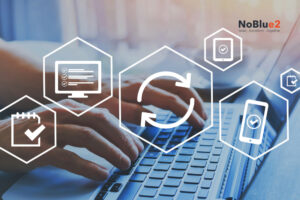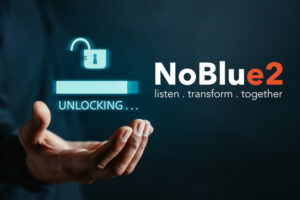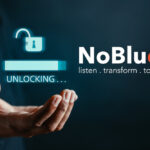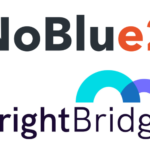If you’re looking for some new business management software, one of the first vendors likely to come to mind is Sage. As a mature company with a long history of providing financial software to businesses, Sage ERP X3 is certainly a solution worth considering. But before making your decision, it’s best to make sure that you have looked into all of the options.
Here we go through some of the key differences between Sage ERP X3 and NetSuite.
Meet the products
Sage ERP X3
Formerly known as Adonix and based in France, Sage ERP X3 was purchased by Sage in 2005. It is an integrated ERP software solution that is functionally-robust across manufacturing, distribution, warehousing, CRM and accounting.
It is suitable for companies with 50+ employees and can support between 8 and 500 users. The product is built to be deployed onsite (single tenant) but partners often provide hosting services so customers can operate it in a SaaS (Software-as-a-Service) environment.
Sage released Sage X3 version 7 in June 2014. The new product version includes a HTML5-based web and mobile interface, and various mobile apps. The company relies upon partners to provide customisation and integration services.
Sage continues to offer both perpetual and subscription pricing to meet the needs of smaller mid-market customers.
NetSuite
NetSuite is a cloud-based business management software suite supporting ERP, customer relationship management (CRM), eCommerce, and more. The solution offers comprehensive functionality with industry-specific modules for a broad range of industries, and it is a good fit for small and medium businesses as well as larger enterprises.
NetSuite was built from the ground up for the cloud in 1998, and has been designed to be a perpetual business management solution, with all customers on the same version. It is upgraded twice a year and with the Version 2014 release 2, the company revealed a new user interface supporting HTML5.
Paid for annually on a subscription basis, the product is suitable for companies with 15+ employees, and smaller companies if they are planning growth. There is no upper limit on the number of users.
Outdated versions
According to Gartner, a significant number of ERP X3 customers are using old Adonix versions and have yet to move to a new Sage release. But why not upgrade?
Many Sage X3 users have configured their software to suit their business, but when they upgrade to the newest version, many of these configurations are lost. This is the reason that many customers are simply not upgrading, which means they are not able to take advantage of the latest features offered by Sage.
By comparison, NetSuite only offers a single version of their software, which is automatically upgraded every six months. Any customisations or integrations you have carried out to make it fit your business are not usually impacted by the upgrades. This means you can be confident that you are always on the latest version and take advantage of the latest features.
On-premise, hosted or true cloud?
Sage ERP X3 is designed to be on-premise, whilst offering ‘hosted’ online access. What this means is that you need an in-house server to run the software or you entrust a partner to host it for you and deliver it over the internet. Whilst you may already have a server-based IT structure within your business, this provides more demand on specification and management of your IT system, as well as the staff required to support and maintain this.
Sage has been hesitant to move away from on-premise solutions and fully embrace the cloud. Whilst they are starting to introduce modules and features that to give users secure access to data via the ‘cloud’, it is actually hosted cloud which means they are simply hosting their software on their customers’ behalf and delivering it over the internet.
Hosted cloud solutions are often less flexible and customisable, and can be difficult to upgrade and scale.
NetSuite is what we would describe as ‘true’ cloud. This means it was designed and built for the age of the internet so it is accessed via, and works seamlessly on, all browsers and devices. It is built to cope with large numbers of users with no drop-off in performance and is more flexible and scalable than hosted alternatives.
Multiple products
While NetSuite is focused on innovating a single code base, Sage develops and markets over 48 business applications so customers may face a confusing array of options based on their company size and expected number of users. This also means that development can be slow and innovation is limited.
And if you’re an existing Sage customer using something like Sage 200, then you might think that it will be easy to move up to X3. But unfortunately this isn’t usually an easy process because it requires heavy mapping and configuration.
CRM functionality
Sage ERP X3 includes basic CRM capabilities, but essentially this only includes customer support functionality. Estimating and quoting is not fully supported, and opportunity management is not feature-rich or intuitive. Customers would have to license Sage CRM for more features.
This is an area where NetSuite excels, because its fully-integrated CRM tools offer a complete 360-degree view of the customers, suppliers, vendors and partners, guaranteeing a seamless flow of information throughout the entire customer and business journey.
Integrated eCommerce
Whilst there are some great integrations allowing your eCommerce website to work with ERP X3, Sage does not offer its own eCommerce solution. Conversely, NetSuite provides complete eCommerce functionality allowing you to run every aspect of your business with a single solution, without having to manage and update different products. Having said that, NetSuite also has strong automated plug-ins available should you be happy with your current eCommerce platform.
Do you have anything to add? Please let us know in the comments below.
If you would like to discuss further how NetSuite compares to Sage or any other ERP software, please get in touch with us!









